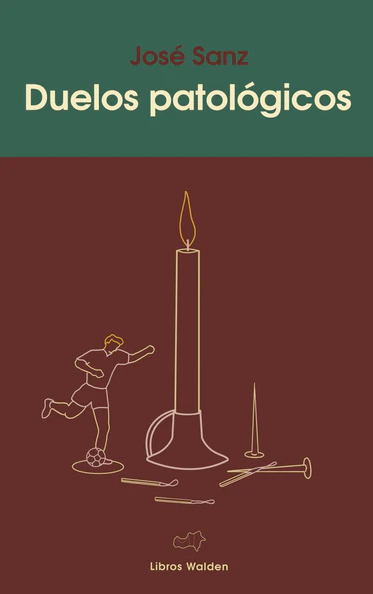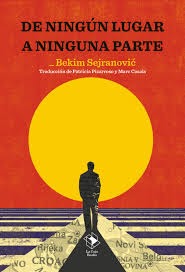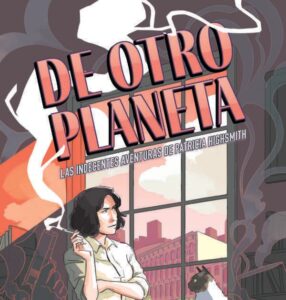
Idioma original: Español
Year of publication: 2024
Valuation: Alright
Pathological grief is a volume that compiles five texts by José Sanz. Although it is a mix of formats and registers (it brings together four stories and a play in three acts), it maintains a fair amount of tonal and thematic coherence. Ultimately, it is full of humour and explores how different characters manage their respective griefs (the death of someone close, the agonising decline of their hobby, a break-up…).
In “The Richest Man in the Country,” the man who gives the story its name, who is also the most hated human being in the country, forces his wealth manager to follow him on a mind-boggling quest. In “The Great Replacement,” an old man refuses to accept that football no longer interests anyone. In “His Indifference Makes Me Want to Break Things” (the play), a part-time priest is called in to perform an exorcism. In “The Diplomatic Way,” a divorced human interacts with a hallway whose walls and ceiling have hair. In “Red Lines,” a self-employed person working from home becomes obsessed with a television that seems to show him himself with his ex-wife.
This play may be a bit long, but overall it leaves a good taste in the mouth. Although I would also like to see it performed, I am glad to have read it (how else would I have been able to experience its hilarious asides?).
A Pathological grief I would find two drawbacks.
- That his style, although functional, could be refined. In “The Richest Man in the Country”, for example, there are a couple of images that Sanz’s prose does not clearly capture, making it difficult for the reader to visualize them. Likewise, in “The Diplomatic Way”, we find several sentences whose wording and structure are somewhat confusing: “I don’t remember much about my stay at the Camp as such” or “I miss that a lot”, among others.
- That the ideas that support his texts could have been exploited more. The sick child in “The Great Replacement” fulfills his function, I do not deny it, but he feels somewhat wasted. The “Camp” in “The Diplomatic Way” makes the same impression on me.
Be that as it may, Pathological grief It is an enjoyable anthology. Its heterogeneity, its modest pretensions, its extravagant concepts and its successful sense of humor certainly make up for its possible flaws and imperfections.
Source: https://unlibroaldia.blogspot.com/2024/08/jose-sanz-duelos-patologicos.html


